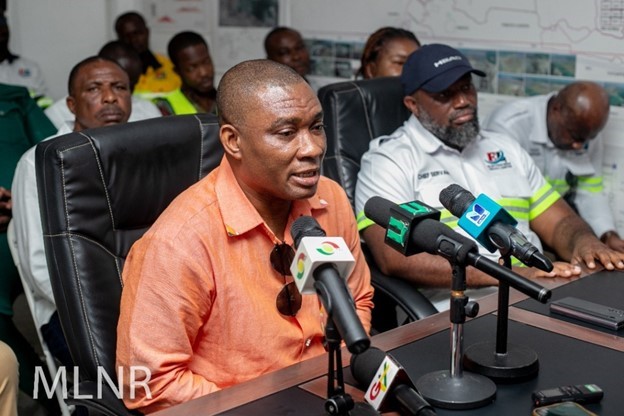By Kizito CUDJOE
Electrochem Ghana Limited, operator of the US$88million salt production plant at Ada Songhor in the Greater Accra Region, is gearing up for a landmark listing on the Ghana Stock Exchange (GSE) before second quarter-2025.
This development is expected to strengthen Electrochem’s position as a key player in the sector. The company, which is transforming a 41,000-acre site into what is projected to be Africa’s largest salt industrial complex, has secured a GH₡300million investment from the Minerals Income Investment Fund (MIIF).
This financial backing is set to transform the facility into a world-class industrial enclave, enhancing its production capacity and competitiveness in the global market.
The planned IPO is seen as a significant step toward attracting further investment and increasing the company’s transparency and governance standards.
Listing on the GSE will offer local investors a unique opportunity to participate in the growth of a critical sector within the country’s economy, particularly as the demand for industrial salt continues to rise across various industries including oil and gas, pharmaceuticals and food processing.
This initiative underlines MIIF’s commitment to promoting growth and transparency within the extractive sector, according to its Chief Executive Officer, Edward Nana Yaw Koranteng.
The anticipated listing is expected to highlight Ghana’s industrial potential, especially in the underdeveloped salt production sector despite the country’s abundance of this natural resource.
During a visit to Electrochem, Deputy Minister-Lands and Natural Resources, George Mireku Duker, reaffirmed government’s support for the initiative.
He emphasised that this project aligns with the broader national agenda of industrialisation and value addition to natural resources.
The deputy minister explained that Electrochem’s expansion and potential stock market debut could serve as a catalyst for regional economic development, job creation and increased foreign exchange earnings.
The visit allowed the deputy minister to gather first-hand information about the company and its operations in the area.
He remarked that this is part of government’s efforts to ensure a mutually beneficial relationship between the company and local residents, contributing to growth of the area and Ghana as a whole.
The deputy minister commended the McDan Group of Companies’ Group Chairman, management and staff for the project.

He called for a collaborative effort and appealed for discontented residents from various Ada communities to support the company’s success.
He also emphasised the importance of a strong and collaborative relationship between mining companies and communities in catchment areas, advising that communities should be considered key and indispensable partners in their activities.
He further urged the company to establish a trust fund that allows communities to benefit directly from revenue generated by salt mining, which he believes will strengthen the company’s relationship with its hosts.
On corporate social responsibility (CSR) initiatives, he cited a US$3million investment in women’s trade and the construction of sporting facilities – with plans for additional community impact projects.
Group Chief Executive Officer-McDan Group of Companies, Kwaku Ampromfi, commended the deputy minister for his consistent support. He reiterated his outfit’s commitment to expansion and fulfilling its CSR commitments.
Vice President-Ada Traditional Council, Nene Agudey, for his part expressed gratitude to Electrochem, stressing the company’s collaboration with traditional authorities.
It will be recalled that President Nana Akufo-Addo cut the tape for official commencement of work at the facility, which is said to hold the potential to make salt one of the country’s leading export commodities to the African market under the African Continental Free Trade Area (AfCFTA) arrangement.
The project is estimated to yield about US$2billion to the economy in the short-to-middle-term, making it one of the major sources of foreign exchange by 2026 under AfCFTA when the Ada Songor Salt project is fully completed.
With an initial production capacity of one million metric tonnes of salt per year, the project is to be scaled up to about two million tonnes by 2025. The concession meanwhile holds an ultimate capacity of 15 million tonnes per year when all phases are fully completed.
As salt is identified as a critical commodity for food security and industrialisation of the African continent, the long-term target of 15 million tonnes is projected to feed the demand of most countries on the continent – with Ghana and Senegal standing tall as the only countries with natural salt minerals in West Africa.










